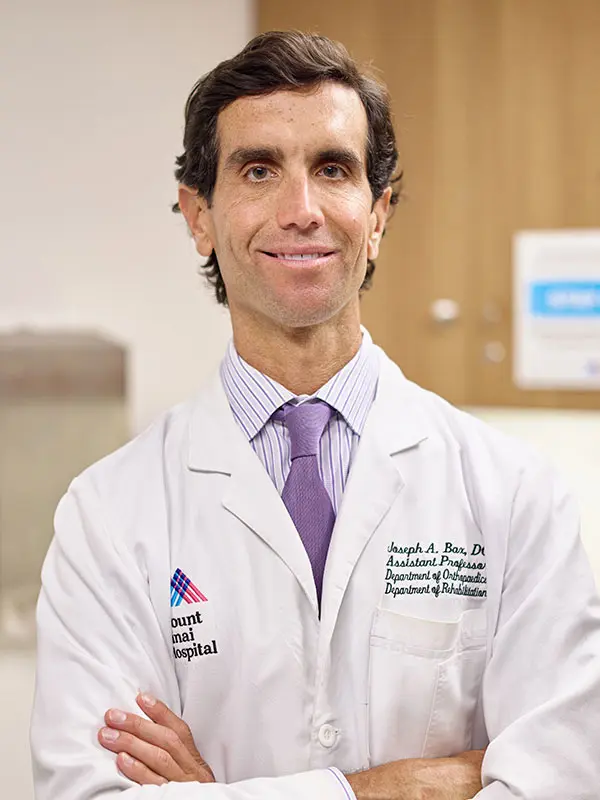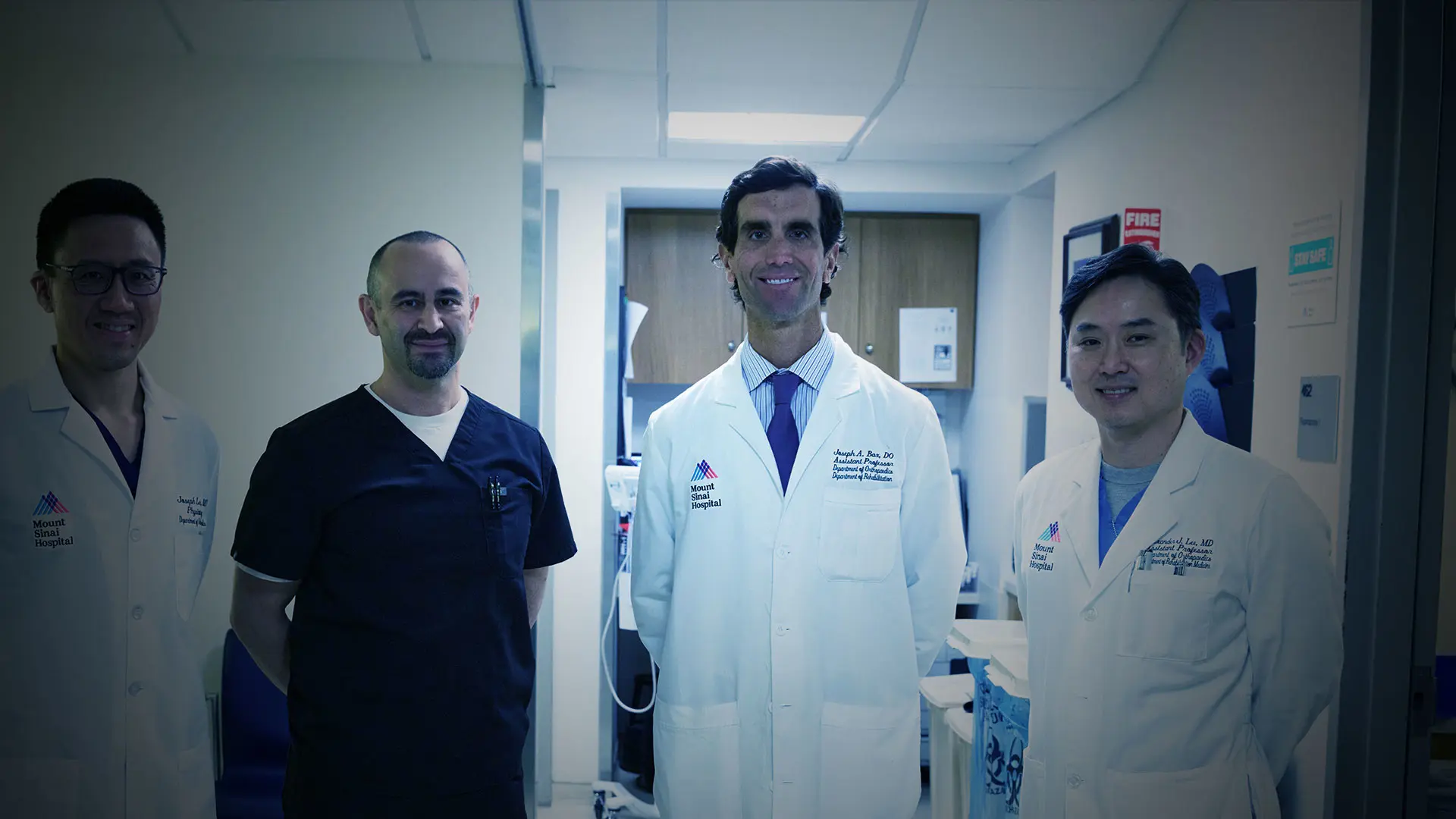Since joining the departments of Orthopedic Surgery, and Rehabilitation and Human Performance at the Icahn School of Medicine at Mount Sinai in 2017, physiatrist Joseph Bax, DO, has been on high alert for innovative new ways to nonoperatively treat patients for a wide range of spinal and musculoskeletal conditions. This has stoked his passion for stem cell and platelet-rich plasma therapies, and for working seamlessly with orthopedic surgeons to develop individual treatment plans around strategies such as injections, ablation, and physical therapy.
Now, as the new Chief of Physiatry in the Department of Orthopedics, Dr. Bax has a powerful platform to double down on some of his forward-looking ideas to further strengthen a team already well known for its expertise.
“We’re always looking for new and less-invasive forms of treatment to offer our patients to complement advanced techniques in place, such as ultrasound and fluoroscopically guided procedures, epidural and facet injections, radiofrequency ablation, and spinal cord stimulation,” says Dr. Bax, Assistant Professor of Orthopedics, and Rehabilitation and Human Performance at Icahn Mount Sinai. “I’m particularly excited about the research our department is doing with regenerative medicine, along with opportunities to bring additional talented medical students, residents, and fellows into our field through comprehensive training programs.”
Working With a Team of Surgical and Nonsurgical Specialists
As Dr. Bax points out, physiatry is in an ideal position, working with a vast and experienced network of surgical and nonsurgical specialists within the Spine Center at The Mount Sinai Hospital. In fact, these services, which include neurologists, rheumatologists, pain management physicians, physical and occupational therapists, acupuncturists, and chiropractors, are often co-located on the same floor for the convenience of patients.
“As physiatrists, we’re often the first physicians to evaluate patients who come in with newer onset or chronic back and neck pain,” notes Dr. Bax, who is triple board certified in physical medicine and rehabilitation, pain medicine, and hospice and palliative care. “Our goal is to avoid surgical intervention if possible, but if it is indicated, we have the ability to walk down the hall and consult with one of our surgeons, often while the patient is waiting in our office.”
Enhancing the team’s capabilities is an on-site fluoroscopy suite that is pivotal to the diagnosis and treatment of spinal disorders, including lumbar, cervical, spinal deformity and trauma, and athletic injuries; and musculoskeletal conditions such as pain emanating from the shoulder, elbow, hand, wrist, knee, or hip.
Investigating New Treatments and Therapies
No less important to the new head of physiatry are the research labs within Orthopedics, where Dr. Bax often works with other investigators on novel treatments for spinal cord injuries, deformities, and chronic conditions. Within this space, he has developed a strong interest in the emerging field of regenerative orthopedic medicine, particularly when it comes to therapies involving stem cells and platelet-rich plasma. For example, stem cells have shown great promise in studies for repairing or regrowing degenerative disks.
“We’re carefully studying outcomes when we extract stem cells—primarily from a patient’s bone marrow or adipose tissue—and inject them into disks of the spine to see if we can reverse the aging process,” Dr. Bax explains. “We believe stem cell therapy could be a truly innovative way to delay or avoid surgery.”
He is also enthusiastic about the use of platelet-rich plasma, which contains growth factors and cytokines that may be helpful in healing and repairing damaged tissue from conditions such as knee osteoarthritis and sports-related injuries such as pulled muscles and ligament tears. Platelet-rich plasma is produced by spinning blood in a centrifuge that separates it into different components according to their density, including blood serum. This byproduct can then be administered to patients via injection.
Dr. Bax considers regenerative technologies consistent with the advanced care that Orthopedics prides itself in offering to patients. “Our goal is to keep patients as pain free and functional as possible,” he says, “and we will continue our tradition of providing great spine care through a multitude of services under one roof.”
Featured

Joseph Bax, DO
Assistant Professor of Orthopedics, and Rehabilitation and Human Performance
